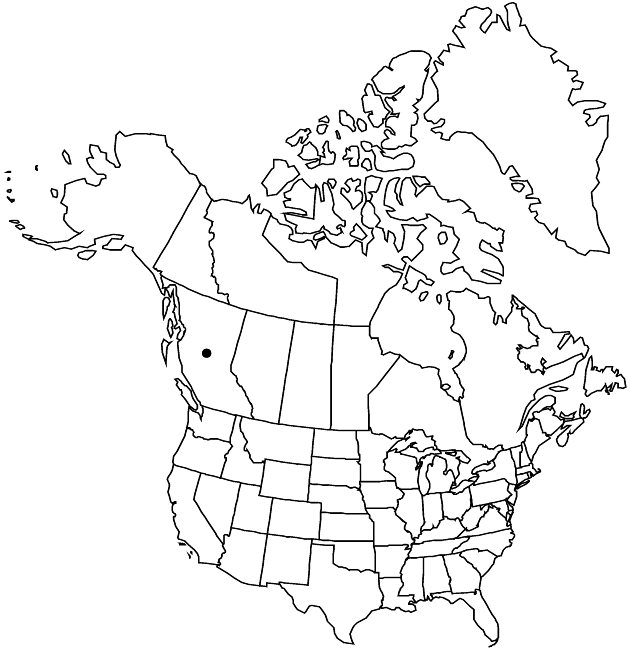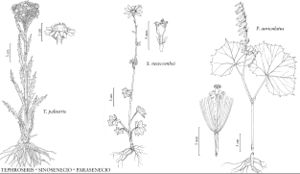Sinosenecio newcombei
Novon 6: 266. 1996.
Leaves: petiole lengths 2–3 times blades; blades 1–2 × 1–2.5 cm, bases cordate to truncate, lobes 5–7, mucronate. Peduncles bracteolate. Phyllaries 5–8 mm. Ray corollas: laminae 10–15 mm. Disc corollas 3–4 mm. Cypselae 1–2+ mm; pappi 1–2+ mm. 2n = 48.
Phenology: Flowering summer.
Habitat: Open, rocky or boggy places, heath and talus slopes
Elevation: 300–800 m
Distribution

B.C.
Discussion
Sinosenecio newcombei grows on the Queen Charlotte Islands, off the coast of British Columbia. It is superficially similar to plants in the genus Packera but differs in having the suite of “tussilaginoid” microcharacters and cytology (T. M. Barkley 1999). Morphologically and ecologically, it falls comfortably into Sinosenecio, which is otherwise restricted to montane regions of the Orient, especially China and Korea. Its occurrence in the Queen Charlotte Islands poses interesting phytogeographic questions.
Selected References
None.
